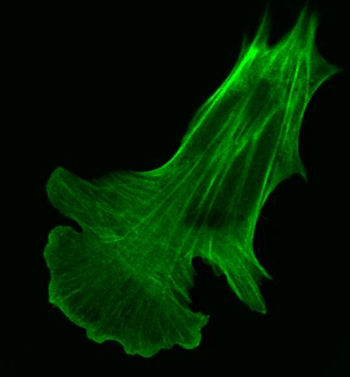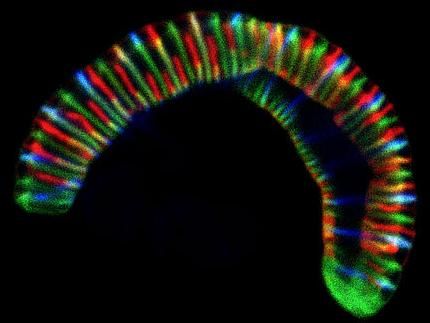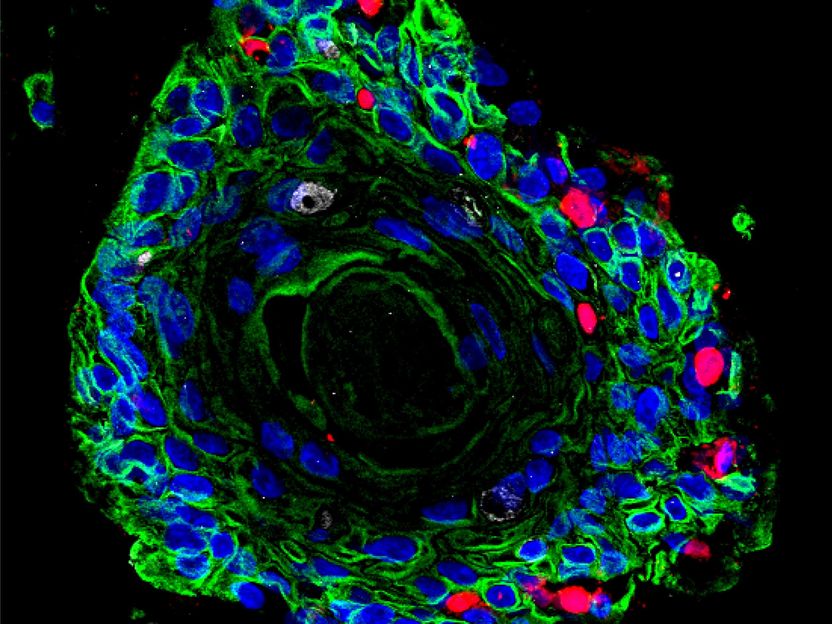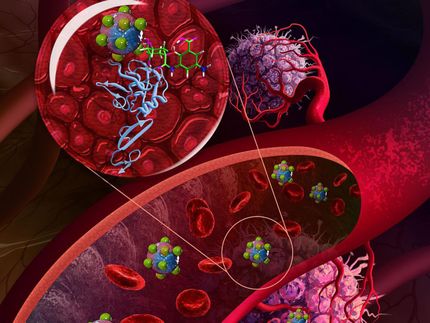Imaging method has potential to stratify head and neck cancer patients
Researchers have identified a potential new way to predict which patients with head and neck cancer may benefit most from chemotherapy.
These patients commonly receive pre-treatment induction chemotherapy, before either surgery or radiotherapy, to reduce the risk of disease spread. However the effectiveness of such treatment is reduced in tumours with poor blood flow.
Previous studies have shown that CT scans can be used to assess tumour blood flow. Now researchers at The University of Manchester and The Christie NHS Foundation Trust - both part of the Manchester Cancer Research Centre - have explored the use of MRI scans in predicting which patients would benefit from induction chemotherapy.
Professor Catharine West, who led the study, said: "It's also important to identify those patients who are unlikely to respond to induction therapy so that we can skip ahead in the treatment pathway and offer them potentially more effective treatments and hopefully improve their outcome."
The team used an imaging technique known as dynamic contrast-enhanced MRI (DCE-MRI), where a contrast agent tracer is injected into a patient's vein whilst they have a series of MRI scans taken. This allows scientists and doctors to investigate the blood flow and vessel structure of a patient's tumour.
They found that the blood flow of a patient's tumour before they received induction therapy could predict response to treatment. The group report that those with high tumour blood flow were more likely to respond.
Jonathan Bernstein, a co-author on the paper, said: "Delivery and effectiveness of chemotherapy appears to be better in tumours with higher blood flow. However, amongst those patients with lower measured tumour blood flow, more work is needed to determine those who will and won't respond."
Original publication
Jonathan M. Bernstein, Lucy E. Kershaw, Stephanie B. Withey, Natalie M. Lowe, Jarrod J. Homer, Nicholas J. Slevin, Suzanne C. Bonington, Bernadette M. Carrington, Catharine M. West; "Tumor plasma flow determined by dynamic contrast-enhanced MRI predicts response to induction chemotherapy in head and neck cancer"; Oral Oncology; 2015
Most read news
Original publication
Jonathan M. Bernstein, Lucy E. Kershaw, Stephanie B. Withey, Natalie M. Lowe, Jarrod J. Homer, Nicholas J. Slevin, Suzanne C. Bonington, Bernadette M. Carrington, Catharine M. West; "Tumor plasma flow determined by dynamic contrast-enhanced MRI predicts response to induction chemotherapy in head and neck cancer"; Oral Oncology; 2015
Organizations
Other news from the department science

Get the life science industry in your inbox
By submitting this form you agree that LUMITOS AG will send you the newsletter(s) selected above by email. Your data will not be passed on to third parties. Your data will be stored and processed in accordance with our data protection regulations. LUMITOS may contact you by email for the purpose of advertising or market and opinion surveys. You can revoke your consent at any time without giving reasons to LUMITOS AG, Ernst-Augustin-Str. 2, 12489 Berlin, Germany or by e-mail at revoke@lumitos.com with effect for the future. In addition, each email contains a link to unsubscribe from the corresponding newsletter.
Most read news
More news from our other portals
Last viewed contents
Amorfix A(4) Assay Provides New Insights Into Alzheimer's Disease Pre-clinical Development Mouse Models - Amorfix Quantifies Rate of Accumulation of Amyloid in Seven Mouse Models of AD
Aterovax Signs Collaboration with Biomnis to Offer sPLA2 Activity Testing in Pharmaceutical Clinical Research

Max Planck Innovation awards license for actin marker LifeAct - Max Planck Innovation and ibidi sign license agreement for cytoskeleton research

Caterpillar-like bacteria crawling in our mouth - Evolution of longitudinal division and multicellularity in oral bacteria
Cell Medica strengthens team with key appointment to senior management
Algeta elects US pharma industry executives Judith Hemberger and Kapil Dhingra to its Board of Directors

New 'Chiral Vortex' of Light Reveals Molecular Mirror Images - The entirely new structure of light could help drug developers see their work more clearly than before
American_Medical_Marijuana_Association
Category:Cell_biology_literature

Cancer: When viruses and bacteria cooperate - HPV and Chlamydia: a malicious alliance driving cellular transformation
AFFiRiS' Alzheimer's Vaccine AD02 already in clinical phase II






















































